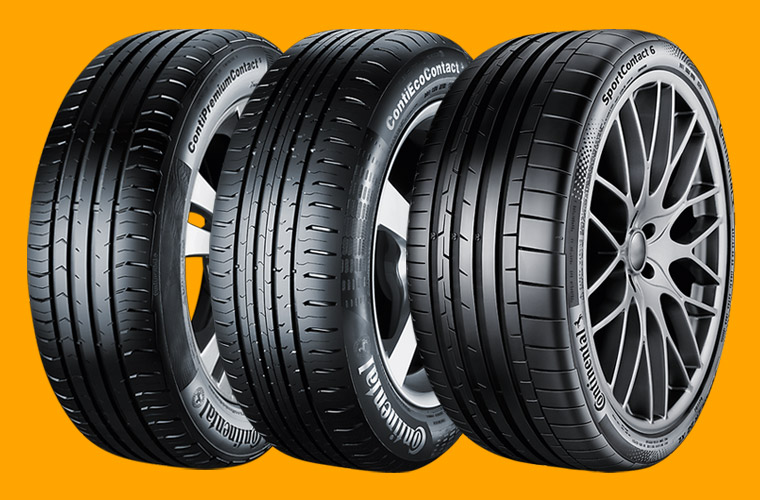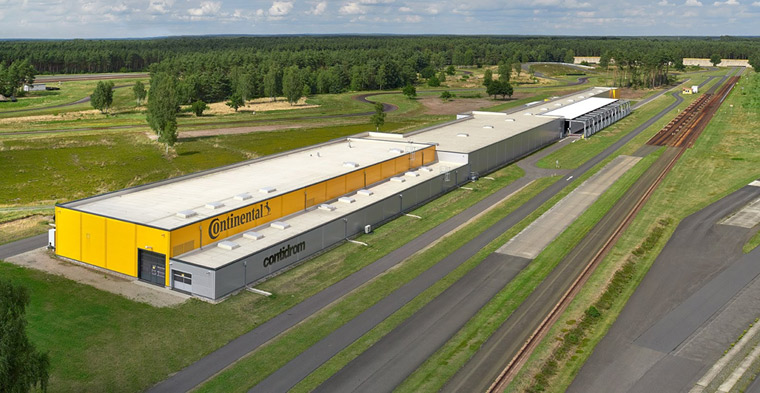It’s a fact. The majority of UK drivers don’t think about the tyres that are fitted on their car, until that is they need to change them. And when that happens, it’s incredibly tempting to spend less on tyres because – well – they’re all the same, right?
Wrong. They’re not the same, and, as a result, they offer very different levels of performance and – more importantly – safety. In our latest tyre safety article, the Asda Tyres team explain why investing a little more in tyres makes you not only safer but – in the long run – better off in the pocket, too. Read on.
There are cheap tyres, and there are premium tyres
Firstly, virtually all new cars that roll off production lines are fitted with premium tyres. In fact, one in three new cars sold in Europe are fitted with tyres made by Continental. So – if you purchased a car new, or nearly new – you’ve already experienced the benefits of the car manufacturer investing more in high-quality tyres.
Of course, the car companies could choose instead to invest less in tyres. This could bring the overall cost of the car down, but they don’t. Why? Because – when it comes to premium tyres –the quality of the construction and the materials used, plus the heavy investment in research and development by the tyre manufacturers, means:
– They’re much safer, providing drivers with better handling and braking performance
– They last significantly longer (in an exact like-for-like usage comparison) thanks to their superior compounds
– They’re designed to work optimally on the specific vehicle, and as a result offer a far better driving experience
Let’s look at these in turn.

Investing in premium tyres makes you safer
Popular insurer, Direct Line, asked various tyre industry experts to make the case for investing less on tyres. None would. This is primarily because the experts believe investing more in tyres is critical for road safety – especially when it’s wet.
Why wouldn’t they recommend less expensive tyres? It’s due to the comparably lower grade rubber compounds used to make them. While they’re usually fine when it’s dry, they just aren’t as effective at gripping wet roads, compared to premium tyres.

And that means what? Simply put, if you choose to fit your car with cheaper tyres, you’ll have increased stopping distances when you brake on – for instance – a dark, wet night, compared to premium tyres. And that can be the difference between having an accident, and avoiding one.

Continental takes the view that road safety begins where the tyres touch the ground and – through its “Vision Zero” road safety initiative – is campaigning to achieve “zero fatalities, zero injuries, zero accidents”.
Here’s a little insight into one area of research and development that’s focused on delivering better braking safety. At the “Contidrom” in Germany, unmanned vehicles are accelerated to speeds of 75mph in Continental’s AIBA (Automated Indoor Braking Analyser) facility to test braking performance on interchangeable road surfaces and weather conditions, including ice. The tests take place all year round, and the real-time results define product development. As a result, there are continued improvements in tyre technology and driver safety.


Investing in premium tyres means they’ll last longer
From what you’ve read so far, you’ll have a better understanding of why investing more in tyres will initially cost a bit extra. And yes, while there’s a higher initial outlay, it’s important to also consider the rate of tyre wear. Investing more in tyres means that they’ll last much longer – up to three years longer, according to highly regarded consumer champion, Which?.
Based on an annual mileage of 12,000, Which? found that less expensive tyres only last for two years, while their premium counterparts tended to last for five (in an exact like-for-like usage comparison). So yes, a little bit more money upfront, but over time, premium tyres actually work out to be more cost effective. And don’t forget, they’re much, much safer in wet weather conditions, too!
Premium tyres deliver superior handling and performance
Earlier in the article, we mentioned that the vast majority of brand-new cars are fitted with premium tyres. While safety is of paramount importance to all automotive manufacturers, they also want drivers to experience the best possible ride and handling characteristics that their engineers have developed in the vehicles themselves.
It’s why many of the tyres on new cars have what’s known as “Original Equipment” (OE) status. This means that both the car and tyre manufacturers have got together to jointly develop a tyre that brings out the best properties and characteristics of a specific car model, with the aim of enhancing the vehicle’s ride and handling performance.
If your vehicle has OE tyres, it makes sense to replace them like for like. If you changed them to cheaper tyres, you’d not only upset the vehicle’s driving characteristics, you’d notice the inferior ride quality too. And nobody wants to experience that, right?
Talk to Asda Tyres for expert, impartial tyre advice
We’ve focused on the three main reasons to buy premium tyres, but it’s also worth mentioning that they always come out on top in independent tests (which also reveal them to be both more fuel efficient and less noisy). That’s even more reasons to choose premium tyres over cheaper tyres, right?
If you’re still unsure about which tyres to buy for your vehicle, talk to the professionals at Asda Tyres. We’ll provide you with expert, impartial tyre advice and fitting solutions. Click here to live chat to one of our experts, or find your nearest fitting station.
